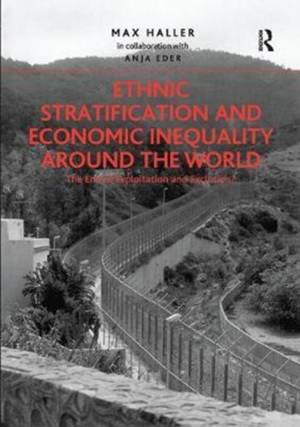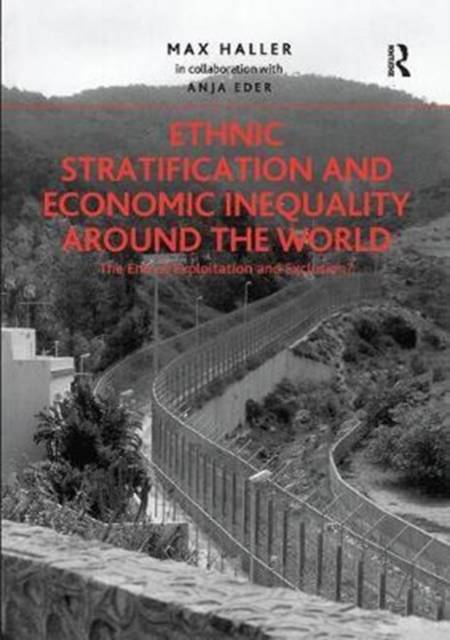
- Afhalen na 1 uur in een winkel met voorraad
- Gratis thuislevering in België vanaf € 30
- Ruim aanbod met 7 miljoen producten
- Afhalen na 1 uur in een winkel met voorraad
- Gratis thuislevering in België vanaf € 30
- Ruim aanbod met 7 miljoen producten
Zoeken
Ethnic Stratification and Economic Inequality Around the World
The End of Exploitation and Exclusion?
Max Haller in Collaboration, Anja Eder
Paperback | Engels
€ 67,95
+ 135 punten
Uitvoering
Omschrijving
The modern world is characterised by pervasive economic inequalities. Strong economic growth in some developing countries has contributed to a degree to a reduction in the levels of inequality between nations, yet inequality within nations remains high and in some cases, continues to increase. Ethnic Stratification and Economic Inequality around the World investigates the reasons for these striking differences, exploring the coincidence and interaction between economic stratification and ethnic differentiation. Drawing on extensive international survey and statistical data, the author develops a new theory and concrete hypotheses concerning the conditions which lead toward extreme inequality and those which tend toward greater equality. A systematic examination of the interaction between class structures, social stratification and ethnic differentiation, this book sheds light on the manner in which the resulting social structures produce different levels of economic inequality, offering a fivefold typology of patterns of ethnic stratification, which can be applied to present-day world regions. Drawing on the work of Max Weber to provide a rigorous investigation of inequality around the world, it demonstrates what 'sociology as a science of social reality' can significantly contribute to our understanding of global economic stratification. The book is relevant for a wide social-scientific audience, particularly for sociologists, economists and political scientists working in a comparative perspective.
Specificaties
Betrokkenen
- Auteur(s):
- Uitgeverij:
Inhoud
- Aantal bladzijden:
- 418
- Taal:
- Engels
Eigenschappen
- Productcode (EAN):
- 9781138306479
- Verschijningsdatum:
- 16/06/2017
- Uitvoering:
- Paperback
- Formaat:
- Trade paperback (VS)
- Afmetingen:
- 175 mm x 246 mm
- Gewicht:
- 697 g

Alleen bij Standaard Boekhandel
+ 135 punten op je klantenkaart van Standaard Boekhandel
Beoordelingen
We publiceren alleen reviews die voldoen aan de voorwaarden voor reviews. Bekijk onze voorwaarden voor reviews.











